Last Quarter: Six months of healing
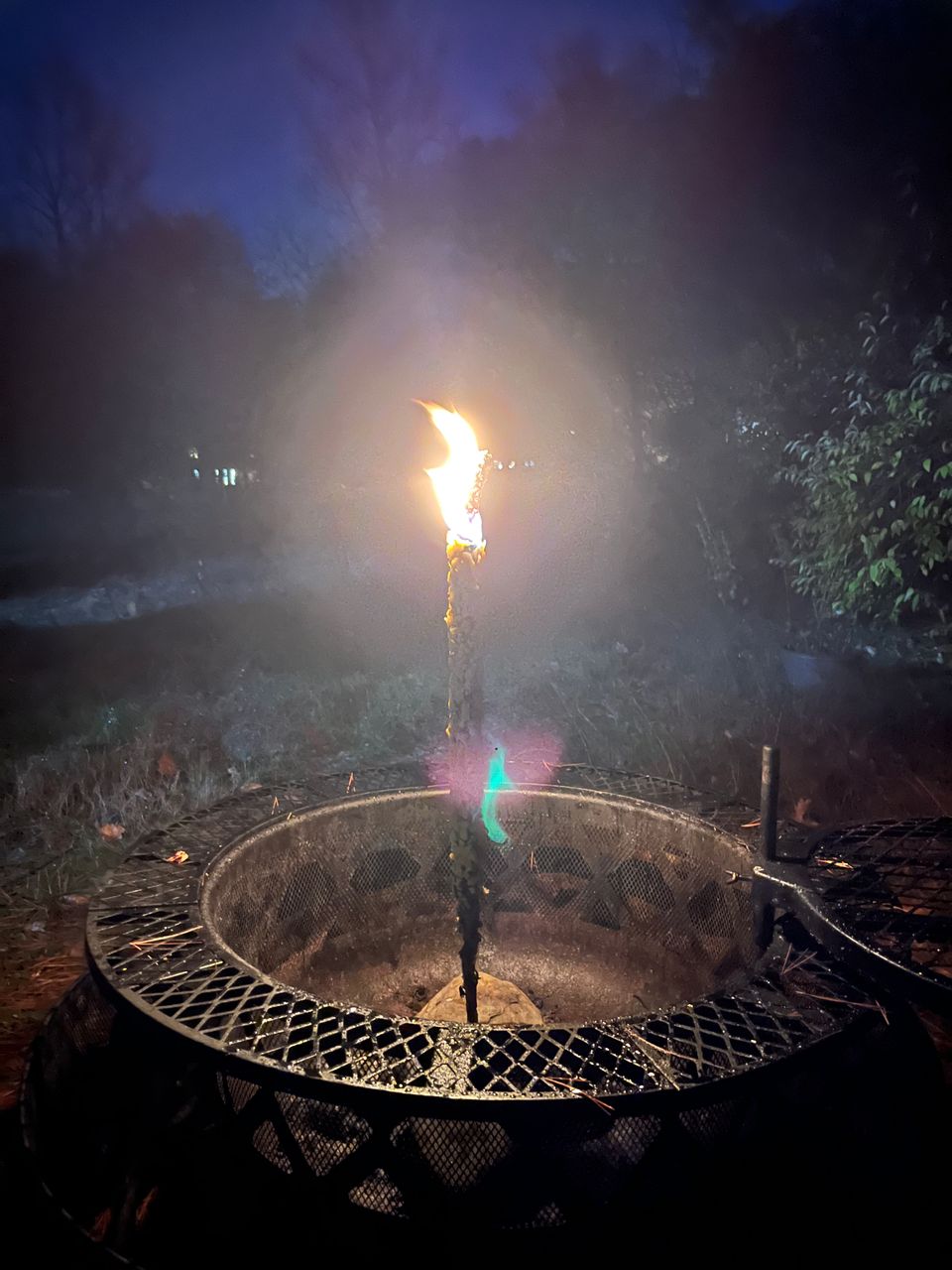
Hello. It's Friday, and it's also been six months since I began Salt for the Eclipse.
In that time, more changes have occurred in my mind and heart than I foresaw in November. When I started this newsletter, I was barely three months into grief for my cat, my lost familiar; I had also finally made some progress at fighting half a dozen lifelong (or adult-life-long) traumatic demons with my therapist, but I didn't know if it would ever be possible to get any "better" than I'd gotten; I was still in a multi-year stint of autistic burnout; and like most other people I was of course worn down by the accumulated damage of reduced socialization due to the pandemic, worn down by the great dung ball of capitalism and its cousins, worn down by the eco crisis. Despite not being at the absolute nadir of my mental health, which I would describe as three separate periods in 2009, 2013, and 2018-2021, I was still not okay in a rather profound sense. I was constantly holding myself back from collapse. If too many other things went awry, I would tumble back down to nadir again. I wasn't so much "resilient" — I had no resilience — as much as I was maintaining a semblance of functionality through Samuel Beckett's aphorism: I can't go on. I'll go on.
Somehow, in the last six months, most of all in the last two months, I've found myself considering the possibility that I can, in fact, go on.
Salt for the Eclipse isn't a diary, but it's at least a highly personal series of meditations. Sometimes those will inevitably turn back toward my own life, back toward the way my mind works. It's not enough to pontificate about what I imagine the world or humanity needing to heal themselves. I want to also feel sure of whether I myself am healing. And I think that I am.
Some of the causes are natural or at least beyond my ability to have ever changed: my grief's deepest and tenderest wounds have scarred of their own accord, and although not everyone is so lucky I can certainly say the covid pandemic is no longer particularly affecting me and is becoming more of a memory than a present reality. Meanwhile some things haven't changed at all: the autistic burnout is still strong, I'm still bearing significant financial stress as I've borne ever since graduating college[1], atmospheric carbon is still increasing, the ocean is still turning to acid and plastic, and the Anthropocene Extinction is still underway. But to face those obstacles, to fight, and to weather them, it helps to feel like I myself am alive, and to be in more regular contact with people who give me strength.
And it helps to have taken a few specific steps that I've taken in the last six months, which are what I'm thinking about today.
A life with less news
I've touched on this before and will touch on it some other week with greater philosophical attention, but for a few years now I've been converted to the notion that the internet and earlier forms of globalized communications are inherently unsustainable in at least their current forms — that it's possible for our planet to hold this many humans, but that we haven't evolved the psychological capacity to know everything that is going on with each other all of the time. The quest for clicks and engagement is intertwined with phenomena that drive most of us to greater anxiety and depression. Everything happens so much nowadays goes the anonymous adage, but that's not really true. For millions of years of human experience, all kinds of things have been happening that would be just as overwhelming to hear about then as now, if we heard about them all at once — we just didn't.
It can feel counterintuitive to consciously choose to know less about the world if you also want to improve the world and support struggles around the world. And I think some people have the right fortitude and focus to serve as messengers of distant events. Nonetheless, most of us have still only evolved to function locally, and the kinds of improvements we can make in the world are easiest to make locally. I myself am too naturally anxious and over-empathic[2] to hold more than a certain threshold of others' pain in my own body. It's certainly my duty as a social animal to hold some pain besides my own, especially pain which I may have once been complicit in causing, but knowledge of suffering, piled on ad infinitum, is mere noise. It induces hopelessness, apathy, nihilism. When so much constantly matters, eventually nothing matters.[3]
Every Nos Galan Gaeaf — every Samhain — I make a list of things to remove from my life until the same night next year, either temporarily or permanently. I then burn each item from the list in a ritual fire. After several flirtations over past years with not checking news in particular ways, and after quitting certain social media, for this year I resolved to truly rid myself of excessive news. Since then, I've checked news quite infrequently, I've often ignored following up on what I see/hear randomly mentioned, I've curated my remaining social media feeds with a blade of steel, and in terms of actually keeping tabs on any news I really ought to know about, I'm working to refine where to get that information and where to get only that information.
I haven't fulfilled this resolution perfectly. In moments of boredom I sometimes fall into the trap of checking the news as raw stimulation, and I go through channels where I can't filter out signal from noise. Also, while I'd like to be more serious about it when I make this resolution a second time, I think that it would simply not be safe for me, politically, to not know what's going on with certain things in the near future that might impact my personal safety or that of people extremely close to me. And again, I do feel some obligation to be aware of certain situations beyond my personal sphere that I may have no ability to change but that I ought to hold space for as a matter of courtesy and solidarity.
Nonetheless, I am inhabiting a quieter and quieter existence. I find myself more able to listen, really listen, to things happening right at my metaphorical or literal doorstep. I'm not ready yet, but am closer to being ready, for defending the land and air and water right where I live. I can be more patient with educating and listening to my peers, because they're most of the people I'm interacting with anyway. I can take comfort from very simple beauties and rhythms because there isn't much spectacle to distract me.
This feels like one part of what I think healing should feel like.
Abandonment begone
Through therapy, I've also been confronting my lifelong abandonment complex. According to my therapist, and going by what rings true to me, in diagnostic terms most of my inner emotional volatility is some intersection of autism, anxiety, and complex PTSD, the last of which would classically suggest a person fears being harmed by others and has thus developed a dismissive-avoidant attachment pattern. In many contexts I do exhibit that style of attachment — for good or ill, I have been and still can be quite the "ghoster" when I stop trusting someone — but when I do allow myself to get emotionally invested in someone at all, my standard instinct is to switch over completely to anxious attachment. Within those specific relationships it's historically been hard for me to not feel rejection-sensitive in turn: terrified that if someone I love is upset with me then they're automatically on the verge of deserting me, and similarly hyper-resentful when I've put a lot of effort into a relationship but the other person isn't being emotionally demonstrative in the ways that matter to me.
Due to this specific trait, and due to the fact that my abusive partner from long ago was a textbook case of borderline personality, I've sometimes been afraid of whether I myself "am borderline," whether through upbringing or through absorbing my ex's behavior. I trust my therapist in telling me that I absolutely do not merit that diagnosis insofar as besides the abandonment complex I match virtually none of the other traditional criteria, and I'm also far more self-aware of my own behavior patterns than most borderline patients usually are. However, the abandonment complex is a major facet of the condition, and the way that it works in borderline is not materially any different than the way it works for me. Despite all the heavily diagnostic terminology I've just used so far, I don't believe there's a hard and fast line between having a mental illness and not having one, nor a line between "ordered" and disordered psyches; I only say mental illness to describe some of my psychological issues insofar as illness itself is a real thing and it causes distress when it exists and a mental illness is something that causes me distress and that I would rather not have (unlike other psychological issues that I would rather the world simply accommodate). So I don't "have" a borderline personality, in the sense that there's really no framework in which it would be reasonable to say that I have it — but for one thing, I stand some risk of developing it, and for another thing, the principles behind treating (I would rather say helping) borderline folks are as important for me to internalize as the principles behind helping with C-PTSD.
And it's slow work. After over a decade of ineffectual therapy strategies — and of knowing that just taking medicine would create more problems as it solved[4] — it's only in the last year that I've been following a more targeted therapy regimen that I would say is a combination of cognitive behavioral work, guided meditation and hypnosis, eye movement desensitization and reprocessing[5], and selective journaling. Yet the achingly granular progress of these activities is finally getting somewhere.
At some point in the last six months, I began feeling old resentments start to wither away. This isn't the same as feeling no anger about legitimate grievances; I still have that kind of anger, but in the meantime I feel substantially more capable of patience with kind, well-meaning people who do, in fact, return the affection I feel for them, only who don't express it in the languages that I understand best. If I'm overlooked for something, I still mourn the lost opportunity very hard, but I don't feel as if I'm outright cursed to always have things go wrong for me. And a couple of months ago, I even had an epiphany of trust in my own marriage, which has faced challenges I'm not comfortable explaining in this newsletter — but loosely speaking, a good portion of those challenges have stemmed from ways in which I've overcompensated for my fear of being abandoned, inadvertently and continuously denying some of my own needs even when my owner saw what I was doing to myself and tried to encourage the opposite. Lately, especially in the past couple of weeks, I've felt unburdened of a preposterously sized marital millstone, but not in the sense of losing the person I'm married to. Quite the opposite.
A vow of boundaries
I feel closer to my owner and I feel more aware of how strong our bond really is. I feel more secure in other relationships that are of lesser scope and intensity but that are also still extremely important to me. But there has also been one other effect of starting to breaking down my abandonment complex: I feel more confident asserting boundaries with people I don't want to be that close with.
Like I said earlier, I've been a consummate ghoster in the past, and to a certain extent rapid detachment remains my defense mechanism with people who I think are going to ask more of me than I'm prepared to give, or who seem dangerous. I think this is even fairly reasonable if I'm not hypervigilant — if instead I'm able to meaningfully distinguish between people who are legitimate threats vs. people who have made mistakes they aren't likely to repeat. Most of the time, when it comes to friendships and casual acquaintances, I believe I've been able to draw those sorts of distinctions for a long time.
But just as I spent too long in anxious attachment conditions where with a select few people I allowed myself to silence my own voicing of needs and desires, lest those people walk away — I've also known for a while that I've spent equally long in at least one very damaging, mostly unrewarding, painful friendship because as much as I would like to simply walk away and I wouldn't mind in the slightest if the other person relaxed their own attachment to me, nevertheless I haven't felt at liberty to just end our connection. And the reasons for this have been social complexities, i.e. the fact that if I cut someone out of my life, I'm not making this choice in a vacuum. Whenever I've cut someone out, they weren't already embedded in a social sphere I was sharing with other people; or if they were, then excising them wasn't a controversial proposition.
Unfortunately, although I'd like to think I wouldn't hesitate in speaking up if I were in a genuinely abusive friendship, in the greyer area of personality differences and generic mistrust things become less simple. In one case, I know that some friends share my frustrations with somebody we know in common, but even if I gain practically nothing positive from that person anymore, the degree of their damaging behavior is just restrained enough that the more compassionate thing to do is to lead by example rather than ostracize them. In some other cases, I know people who carry lots of social capital in the sphere(s) we jointly inhabit, and even if I've grown lukewarm about our friendship, the potential blowback isn't worth me complaining about them to the people who support them. Again, these friends or acquaintances are not abusive, so I have never known that I'll surely face extreme consequences for telling them or others how I really feel about them; it's just the very basics of silent social conflicts at play. However...
... I am not someone who likes hiding my real feelings about anyone, positive or negative. In particular, I am very bad at masking dislike, at having to make nice with someone who drives me up the fucking wall. Ironically, I have a reputation among a lot of people I know for being "very diplomatic," and I suppose that's still correct, but it's not about swallowing my bile; it's that in a lot of situations my bile is never there to begin with. When I do need to deal with someone I can't stand, I rarely yell or even raise my voice, but I grow brusque, cold, and distant. Even though I can sometimes be reserved with people I like, I think the difference is palpable. Over time I've learned how to mask my distaste for someone, but the emotional cost explodes out of me in private later.
And that's the trouble. With these very specific interpersonal burdens, I can't just leave those people in the dust, due to either the social consequences for them and/or myself, but a) I must mask my dislike when I'm not even at a psychological capacity for doing so, and/or b) I must continue to interact routinely with them regardless of whether I mask or not. Over the years, I've learned to cope with this by not coping at all, and just paying the price. All my mind can conceive of is total detachment; without total detachment as an option, I can only view the slightest interaction with these people as catastrophes.
That is just as unsustainable as walking away from people who don't deserve it. It's an irritation at best and mentally debilitating at worst when there are so many other struggles to fight elsewhere. And so in the last few months I've also decided to maintain my boundaries better — not the boundaries that I'm already very good at setting, but the kinds of boundaries that I have never learned to set. The boundaries to set with people with whom you must grudgingly interact but whom you do not need to allow to run you ragged. I've vowed to simultaneously reduce interaction as much as possible and to tactfully but religiously limit what those people can ask of me in the circumstances where interaction is truly necessary. In the past, I haven't trusted that if I do this kind of subtle boundary maintenance, I won't pay some kind of larger social cost, and thus I've suffered through miserable social experiences when it would have been simpler and not tremendously risky to say, "Actually, I don't wish to do this thing." I've vibrated with seething, resentful tension that others around me can probably feel when I give in to diplomatic considerations at first and then I realize that was a miscalculation. No more of that. No more.
I think it's already making a difference to my resilience. And a side effect is that it's leaving me with more energy to invest in the relationships that really do matter to me.
Salt for the Eclipse
The improvements I've described above may have helped give me additional mental reserves to keep this newsletter alive and on schedule for six months. But also, I'm starting to suspect that writing Salt for the Eclipse is also helping me in turn.
I would still love to be making just enough money from the newsletter to offset the cost of hosting and distributing it, and in a fantasy world I would even offset the work hours I put into it and be able to put some additional income toward my cost of living challenges. However, even more than when I began this, money isn't driving me here, as I still don't like the transactional gatekeeping of knowledge and discourse. Nor am I driven by some hope of having thousands of eyes on what I have to say. Of course a younger version of myself, who didn't think anyone cared about my opinions, would have loved to become famous just because then my opinions might actively be sought; but besides having lived long enough to grow wary of what fame can do to people's personalities, I've also now done enough with my social life to discover that even without being a celebrity, not even a niche one, I at least feel established in a few small spheres and this already creates a lot of social capital ethics to tiptoe through. And crucially, I've independently developed more confidence that people do care about my opinions and my presence in their lives.
Having an audience right here does matter to me on one significant axis, however: affirming one of my core identities as a writer. Under my legal name I've been published a few times, but sometimes the publisher has been myself; and in general I can think of less than ten people, maybe even less than five people, who I'm certain have read all my published output to date. I've had a long-neglected blog that I usually don't update because it results in zero discussions or responses. And meanwhile, I've spent several long years not publishing anything because my second novel, the project I'm currently working on as [legal name], is going to be an order of magnitude longer than my first novel, so even completing the rough draft may take one more year. I've spent a long time not receiving any indication that things I write — fiction or nonfiction — have an audience. This has been demoralizing; though I might not care about thousands of people absorbing my words, there's a very big experiential difference between "no readers" and "one reader," and between "none" and "twenty."
A writer is one version of a community's storyteller. Writing is my most central calling, but to write without any readers at all is a pursuit that often starts to feel like driving oneself slowly psychotic, talking to the ether, scribbling prophecies on the wall of an oubliette. I must have a community to tell stories for, to share ideas with. In starting Salt for the Eclipse, and in knowing — concretely, based not on subscription notifications but on people's direct responses — that a readership actually exists, I've felt incredibly motivated to write and publish here every week, not to the detriment of manuscript drafting but still often enough to feel secure in my calling again. It's a shame that I can't yet associate this newsletter with my legal name, as that might help my formal career, but this situation is much better than what I was dealing with before. I am a writer, no matter what name I have to use; I am a writer because people around me are recognizing me as one.
This security further bolsters my ability to tackle these desperate times. And the things I'm writing here are the most important non-fiction I can ever imagine writing. Salt for the Eclipse is truly not a trivial hobby. I'm going to be at this for a while. You, reader and friend, have my utmost gratitude.
[1] Not due to student loans. I was born into a privileged enough context to not need student loans. But that well ran dry as soon as I got my degree, and I haven't been able to tap it again except for 2-3 dire circumstances including those that led to having a house now. As I've probably mentioned here before, for 13-14 years my owner and I have always had to work, and for that entire time we've been unable to find work that will both offset our cost of living and have anything left over.
[2] This is not a humble-brag. I really was too empathic for my childhood through my 20s. A lot of the current social crisis relies on amplifying people's empathy past the point of usefulness.
[3] If you've seen Everything Everywhere All At Once, it probably won't surprise you to learn that I've also seen it several times and I think it's wonderful. Also, for me it's not so much a story about ADHD/neurodivergence or about generational trauma as it is a story about anxiety in our overconnected, overcommunicative world.
[4] I think that I've discussed before how I'm averse to psych meds because of how I want exactly none of their near-universal side effects: weight gain (not something I personally desire, no judgment on others who accept it), muted emotions, and loss of libido. I also don't want to rely on something as habit-forming as the few alprazolam tablets I keep around for panic attack emergencies. However, since writing about this before, I have discovered buspirone as an anxiety treatment that remarkably seems to rarely, if ever, result in the symptoms that I fear, and is not habit-forming. I do keep thinking about taking it just to bring down my anxiety's baseline, and I'd say odds are about 50/50 that I'll eventually try.
[5] EMDR may only work through placebo and/or incorporation of CBT principles, but like other forms of therapeutic bilateral stimulation, even if researchers don't know why it works, it does work. It's been very central in my therapy lately, it's working for me, and it's been working extremely well for several other people I know.
Thank you for reading the latest psychological developments of someone who, in many cases, you don't know very well. I mostly only expect to write posts of this particular bent about once a season; I think most of my detailed therapeutic processing belongs in my private therapy journal, and I also just can't imagine this is as interesting to most readers as my other post topics would be. Nonetheless, all of the thoughts in Salt for the Eclipse are coming out of my one mind, and it might matter to sometimes present updates on the state of that mind.
Next week, I'm going to return to much less navel-gazing as I meditate on various dualistic/dichotomous paradoxes; and the week after that is a post for paid readers on the ever-stimulating topic of gender in satanic ritual sexuality. Until then, be well — especially as hotter weather sets in.

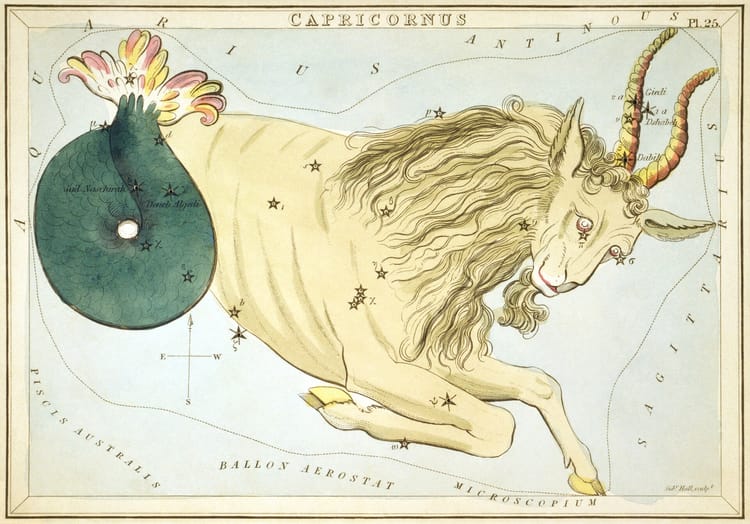
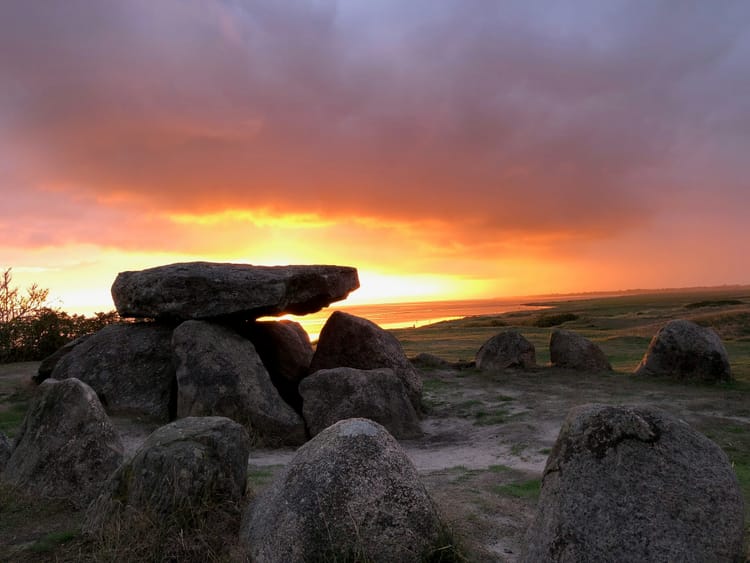
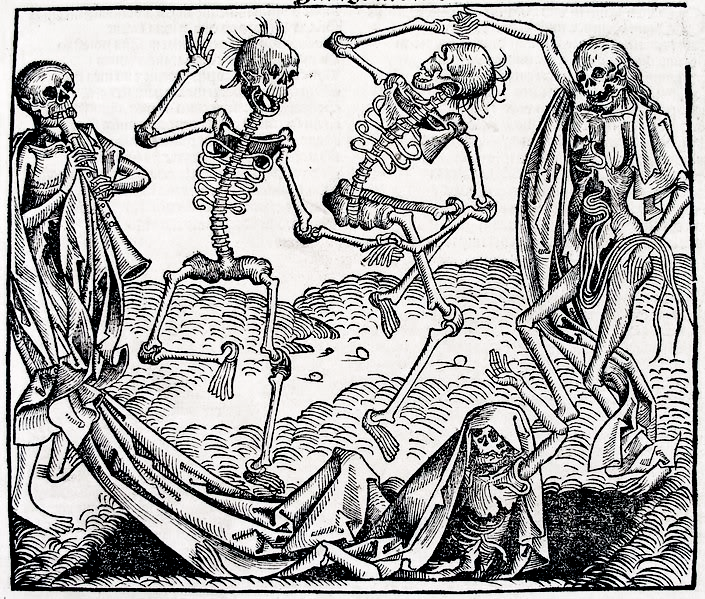
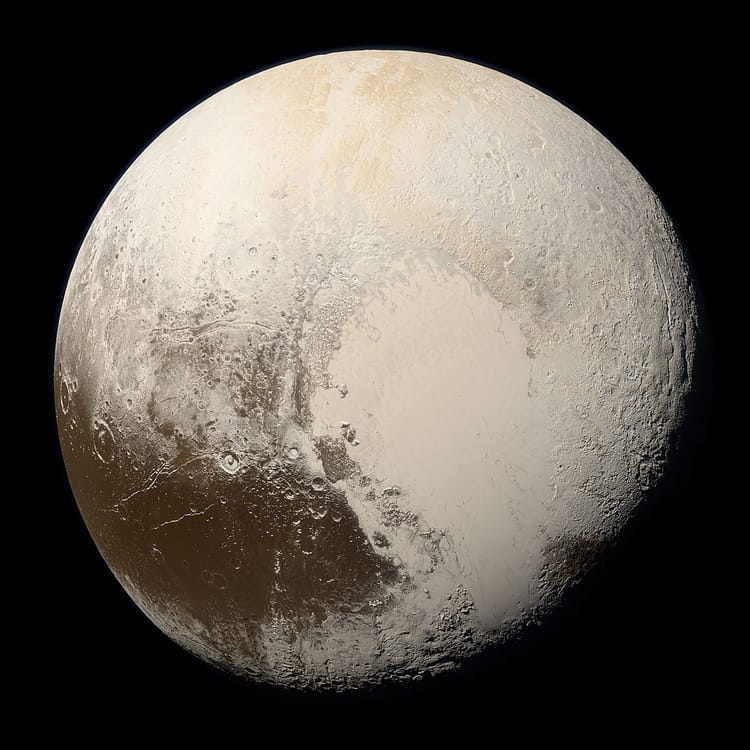
Member discussion